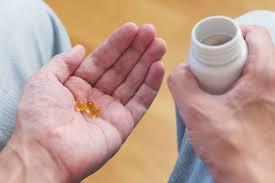Ivermectin: What Is the Best Way to Take It?

Ivermectin 12 mg is a well-known antiparasitic medication used to treat a range of infections caused by parasites such as roundworms, mites, and lice. Initially developed for veterinary use, it has become a vital part of human medicine as well. While effective and generally safe when taken as prescribed, using Ivermectin correctly is essential for ensuring safety and optimal results. In this blog, we’ll explore the best way to take Ivermectin, who it’s for, and what precautions you should follow.
What Is Ivermectin Used For?
In humans, Ivermectin is used to treat conditions such as:
-
Onchocerciasis (river blindness)
-
Strongyloidiasis (intestinal infection by roundworms)
-
Scabies and lice
-
Other parasitic skin infections
It works by paralyzing and killing parasites or slowing their reproduction, allowing the immune system to remove them more easily.
Forms of Ivermectin
Ivermectin is available in several forms:
-
Oral tablets (most common for human use)
-
Topical creams or lotions (especially for scabies or lice)
-
Injectable forms (mostly veterinary, not recommended for human use)
For most parasitic infections, the oral tablet is the standard and safest form prescribed for human consumption.
Best Practices for Taking Ivermectin
To get the most out of your treatment and minimize potential side effects, follow these guidelines:
1. Take on an Empty Stomach
Ivermectin is best absorbed when taken on an empty stomach with a full glass of water. Most doctors recommend taking it at least one hour before a meal or two hours after eating. This helps ensure proper absorption and effectiveness.
2. Follow the Prescribed Dosage Exactly
The dosage depends on your weight, type of infection, and medical condition. A typical dose is 150–200 micrograms per kilogram of body weight, taken once or repeated after a few days or weeks, depending on the parasite.
Never self-medicate or adjust the dosage without medical guidance. Taking too much can lead to side effects such as dizziness, rash, or, in rare cases, neurological symptoms.
3. Avoid Alcohol and Other Drugs That Interact
You should avoid alcohol while taking Ivermectin, as it can increase the risk of side effects like dizziness or low blood pressure. Inform your doctor about all the medications and supplements you are taking to avoid drug interactions—especially blood thinners, sedatives, or anticonvulsants.
4. Stay Hydrated and Rest
Ivermectin may cause mild side effects such as nausea, fatigue, or headaches as your body clears the parasites. Drink plenty of water, get enough rest, and avoid strenuous activity until you feel better.
Who Should Not Take Ivermectin?
While generally safe, Ivermectin should be used with caution or avoided in certain groups:
-
Pregnant or breastfeeding women: Only use if clearly needed and prescribed.
-
Children under 15 kg (about 33 lbs): Dose adjustment is necessary, and use may be limited.
-
People with liver disease: The liver processes Ivermectin, so discuss with your doctor first.
-
Those with neurological conditions: Ivermectin may worsen seizures or other brain-related symptoms.
When to Seek Medical Help
Get medical attention if you experience:
-
Severe skin rash or itching
-
Difficulty breathing
-
Swelling of the face or limbs
-
Confusion or vision changes
These could be signs of an allergic reaction or severe side effect, especially in rare cases of overdose.
Final Thoughts
Ivermectin is a powerful and effective medication when used properly. The best way to take it is orally, on an empty stomach, and strictly as prescribed by a healthcare professional. Avoid self-medication, and always consult a doctor if you're unsure about the dosage, timing, or potential interactions. With the right guidance, Ivermectin can safely help rid your body of harmful parasites and improve your health significantly.
- Art
- Causes
- Crafts
- Dance
- Drinks
- Film
- Fitness
- Food
- الألعاب
- Gardening
- Health
- الرئيسية
- Literature
- Music
- Networking
- أخرى
- Party
- Religion
- Shopping
- Sports
- Theater
- Wellness
